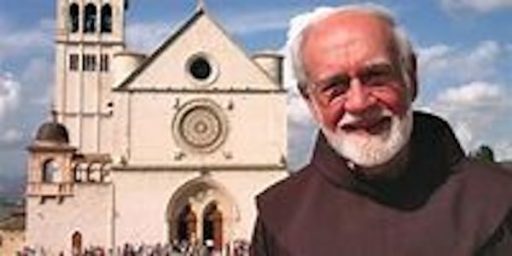If I listed the titles of all the books that Franciscan priest Murray Bodo has written, I’d use up nearly all of the space that we allow for these Close Reading posts.
At first Bodo’s subject was St. Francis, drawing on his Franciscan heritage and on his personal experience of Assisi, where he led pilgrimages for over forty years. Then St. Clare joined in, then books on spirituality, mystics, a memoir, and more. As his prose books continued, Bodo soon began writing poems—collected in nine previous volumes.
Now, in his latest volume of poetry—Teaching the Soul to Speak—he is saying some goodbyes. Bodo is in his eighties, as he mentions in several of the poems. His yearly pilgrimages to Assisi are apparently over, but the city and all that it has meant to him stay alive in his poems, filling here an entire section of the book. This section’s title is “Homeward Bound,” and I love how these words reverberate with multiple referents. In one poem (“Feet”), he calls Assisi his “second home.” But, as some of the poems dramatize, he has left Assisi perhaps forever, so he’s heading homeward to America. Finally, with many of these poems reflecting on old age and death, the home he is bound for could be heaven.
Given Bodo’s age, it’s natural that many poems in this volume muse on being in the final phase of his life. And on memory—which someone in his eighties has plenty of. Often, though, he evokes memory only to reject living primarily in the past:
What he didn’t want
was all memory
He had seen it in others
when they wrote the late poems
what made the memories
More of it and maybe new
No old dog but a puppy (“Seeing Again”)
Similarly, his short poem “The Poem” names “remembering” only to reject it:
It’s not the remembering
mainly but discovering
and it’s not about thinking
so much as the surprise of
feeling the words connect on
the empty indifferent page
I enjoy here how the gerunds—remembering, discovering, thinking, feeling—enact the writing of poetry as a process necessarily in the present.
Yes, the present is very much alive for Bodo. Take the volume’s title poem, “Teaching the Soul to Speak”:
It’s words does it, teach the soul
to speak so it becomes song.
How, though, and what lexicon
of assonance and sibilants
to speak the sound of the soul?
Seems it’s something beyond self
that gives the soul notes and clef
and a rhythm like the earth’s
spin in spinning galaxies
Or simply the heart in
and out of its own rhythm,
a singable human song
of body, the soul’s portal.
The vision here is fascinating. To speak, the soul is entirely dependent on the body: the body’s words, natural rhythms, and—especially—song. In fact, the soul only truly speaks when “it becomes song.”
Singing is central to Bodo’s vision in other poems as well. “Still and Jamb” is one of the volume’s rare poems in which memory is seen as positive—because it (like the “soul” in the previous poem) “becomes song.” This singing is, paradoxically, the “fullness” of memory’s “silence”:
So it was I learned that noise
makes silence unnatural
that once was all we could hear
We journey back all our lives
to hear the silence singing
as when the silence returns
not as an emptiness but
fullness that is almost sound
that is already dissolved
memory becoming song
There’s more singing in “GodSong”—
Is it singing that does it
brings me to you the way
melody just happens when
I’m singing whatever comes
to mind and the words find
their own beat and melody?…
And if I’m thinking of you
the words keep going home to
where you are listening for
what I’ll say that I think is
not in me to say until
I find music in the words
It’s not only music that Bodo finds in the words. For in the words of his poems—in the process of writing them—he finds an affirmation of life. In one’s eighties, activities requiring physical stamina are probably over; but as long as the mind stays alert, the poems can keep coming, can even be “life savers.” Here in full is the book’s final poem, “Pilgrim Poet’s Prayer”:
It’s okay, the losses
as long as
poems keep filling
the empty spaces
I fall into
their swimming
syllables
floating life savers
Has it come
that far, then,
sink or swim
in syllables
It’s more likely
dive in or
watch them
swim away
O holy words
stay with me
draw me into
your buoyancy
This final stanza is, for me, the perfect ending to the book. Its two-beat rhythm feels buoyant. And the rhyming of “buoyancy” with “me” enacts what the stanza prays for: the very writing of poetry gives Bodo the ability to stay afloat in what remains of his life.
Peggy Rosenthal has a PhD in English Literature. Her first published book was Words and Values, a close reading of popular language. Since then she has published widely on the spirituality of poetry, in periodicals such as America, The Christian Century, and Image, and in books that can be found here.





